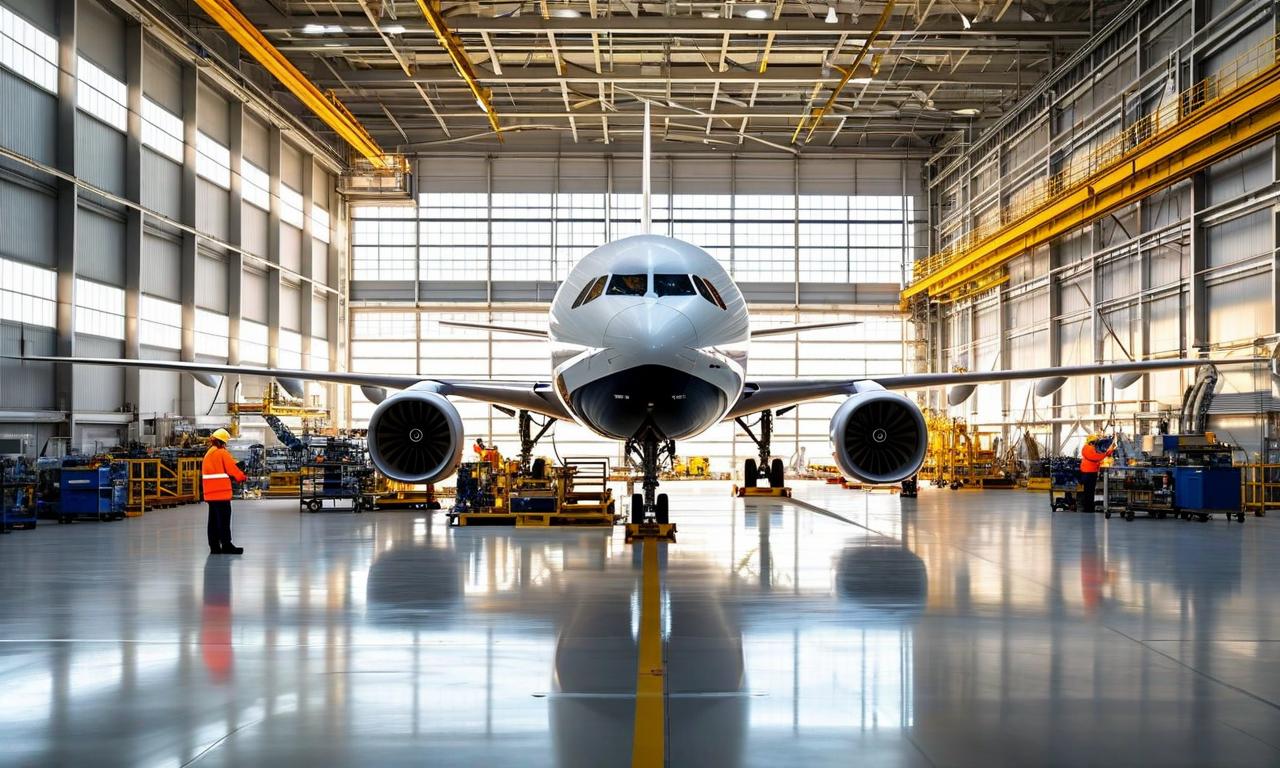Boeing 777X Faces Further Setback: Commercial Launch Pushed to 2027
Boeing has announced another delay in the commercial launch of its 777X aircraft, now set for early 2027. This marks the sixth year of delays for the project. The delay is primarily due to certification challenges with the FAA, not technical issues. Boeing expects non-cash accounting charges of $2.50-$4.00 billion due to this setback. Key customers like Deutsche Lufthansa and Emirates are adjusting their plans in response. The 777X program has already accumulated over $11.00 billion in cost overruns and operates in a reach-forward loss position.

*this image is generated using AI for illustrative purposes only.
Boeing, the aerospace giant, has announced another delay in the commercial launch of its highly anticipated 777X aircraft. The widebody jet will now take to the skies for commercial flights in early 2027, marking the sixth year of delays for this ambitious project.
Impact on Airlines and Financials
The ripple effects of this delay are already being felt across the aviation industry:
- Deutsche Lufthansa, the launch customer for the 777X, has been forced to adjust its fleet plans, now excluding the aircraft until 2027.
- Emirates, another key customer, has expressed growing caution regarding the delayed entry timeline.
The financial implications for Boeing are substantial:
- The company expects to incur non-cash accounting charges ranging from $2.50 billion to $4.00 billion due to this setback.
- This adds to the already significant financial burden of the 777X program, which has accumulated over $11.00 billion in cost overruns to date.
Certification Challenges
Boeing's CEO, Kelly Ortberg, attributes the delay primarily to certification challenges rather than technical issues with the aircraft itself. Ortberg described the situation as a 'mountain of work' in the certification process, highlighting the complexity and stringency of safety regulations in the aerospace industry.
The slower-than-anticipated progress in safety certification work with Federal Aviation Administration (FAA) pilots and inspectors is at the heart of the delay. This underscores the heightened scrutiny and rigorous standards that new aircraft models must meet in the post-737 MAX era.
Financial Outlook
The 777X program currently operates in a reach-forward loss position, indicating that Boeing does not expect to recover the development costs on the first 500 aircraft produced. This financial challenge adds pressure to the company's long-term profitability projections for the program.
Despite the announcement of further delays, Boeing's shares showed resilience, finishing trading with a 1% increase. The market's reaction suggests that investors may have already factored in potential setbacks or are focusing on other aspects of Boeing's business.
Looking Ahead
Boeing plans to provide a more detailed discussion of the financial impact of this delay during its earnings report on October 29. This will give investors and industry analysts a clearer picture of how the company plans to navigate the challenges posed by the 777X program's continued delays.
As the aviation industry continues to recover from the impacts of the global pandemic, the success of new aircraft programs like the 777X remains crucial for both manufacturers and airlines. The extended timeline for the 777X's entry into service will require careful planning and adaptation from all stakeholders in the commercial aviation sector.

























